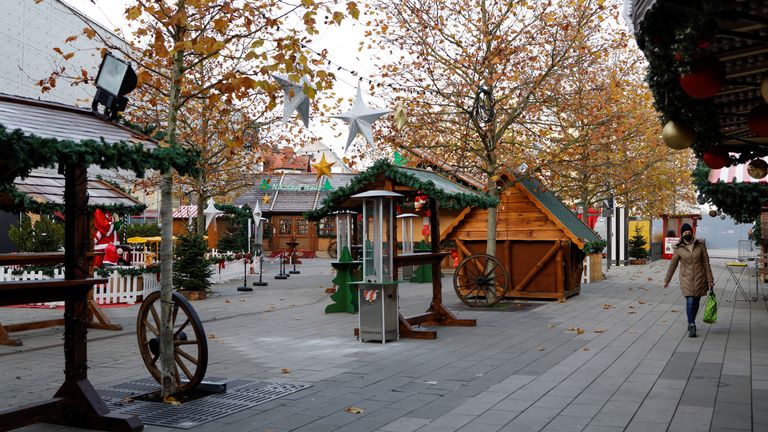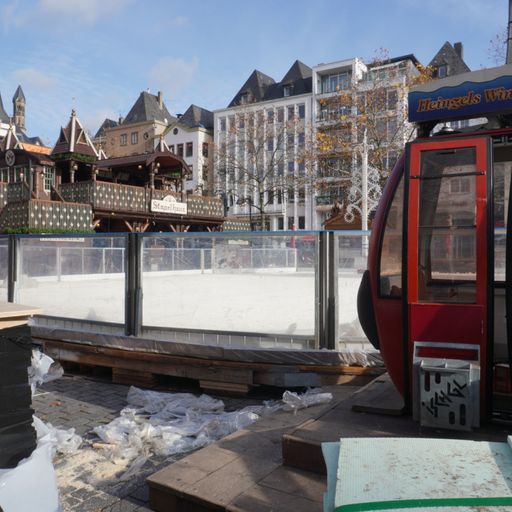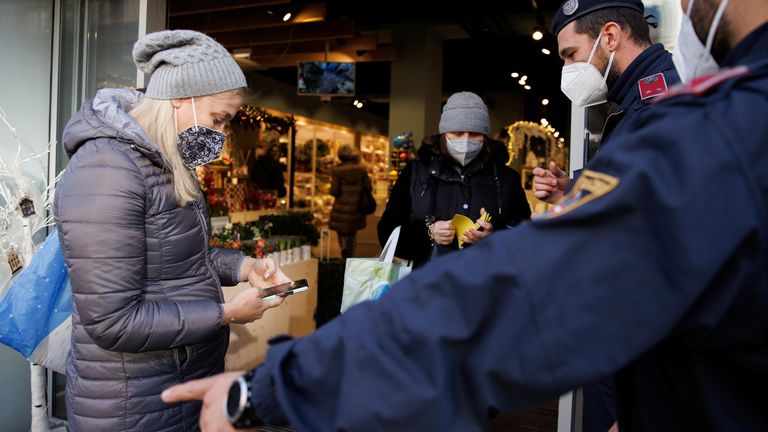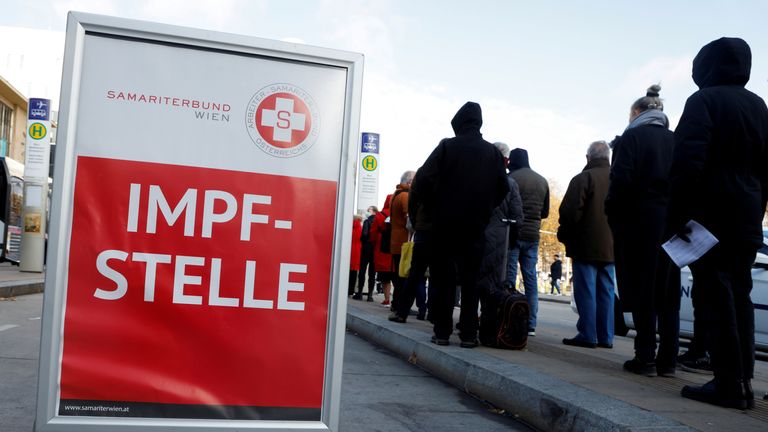COVID-19: Germany may follow Austria into full lockdown as coronavirus cases hit new high
Berlin warns it could join its neighbours in closing schools, shops and bars - as Vienna hits out at "radical anti-vaxxers and fake news" after revealing plans for compulsory jabs.
Saturday 20 November 2021 15:52, UK
Austria is to become the first country in Europe to make COVID-19 vaccines mandatory by law and has announced a full national lockdown from Monday, amid a fourth wave sweeping the continent.
Chancellor Alexander Schallenberg said the coronavirus lockdown would run for a "maximum of 20 days".
He also announced it would be a "requirement to get vaccinated" in Austria from 1 February.
Students will have to go back into home schooling, restaurants and most stores will be closed and cultural events will be canceled.
"We do not want a fifth wave," Mr Schallenberg said.
"Nor do we want a sixth or seventh wave. This is very painful."
The measure to make vaccination compulsory among the adult population will attract controversy, with Austria only the fourth country in the world to do so - after Indonesia, Micronesia and Turkmenistan.
Mr Schallenberg said: "Whipped up by radical anti-vaxxers, by fake news, too many among us didn't get vaccinated. The results are overcrowded intensive care units and enormous suffering."
He said the government therefore took "a very difficult decision...that we will quickly introduce a nationwide vaccine mandate" from 1 February.
The nation had already introduced a series of strict measures along with Germany and Slovakia in the weeks leading up to Christmas, as a debate intensifies over whether vaccines alone are enough to tackle coronavirus.
Around 66% of Austria's population is fully vaccinated, one of the lowest rates in western Europe.
Its infection rate is among the highest in the continent, with a seven-day incidence of 971.5 per 100,000 people - and daily cases keep setting records.
The country of 8.9 million has reported more than 10,000 new infection cases daily, while hospitals have been overwhelmed with many new COVID-19 patients and deaths have also been rising again.
The national lockdown will initially last for 10 days, after which the effects will be assessed and the measures extended to a maximum of 20 days if cases have not gone down enough.
Two states in Austria - Salzburg and Upper Austria - had already triggered a range of restrictions, with the rules extended to apply to vaccinated people and a full lockdown from next week that would see schools shut and a curfew imposed.
Last week, Europe accounted for more than half of the seven-day average of infections globally and about half of the latest deaths, according to a tally by Reuters news agency.
It comes after German Chancellor Angela Merkel announced fresh curbs on public life for those who have not had a vaccine in areas where hospitals are filling dangerously fast with coronavirus patients.
And German health minister Jens Spahn today hinted that the country could follow Austria in announcing a full lockdown.
Follow the Daily podcast on Apple Podcasts, Google Podcasts, Spotify, Spreaker.
"We are now in a situation ... where we can't rule anything out," he said.
"We are in a national emergency."
Parts of the country have already shut down businesses, with images showing stalls in Munich's Christmas market closed.
Greece has also imposed more restrictions on unvaccinated people following a recent surge in cases - barring them from all indoor spaces, such as cinemas, museums, and gyms.
The death rate from the virus has reached its highest level in six months, as roughly one-third of Greece's population remains unvaccinated.







